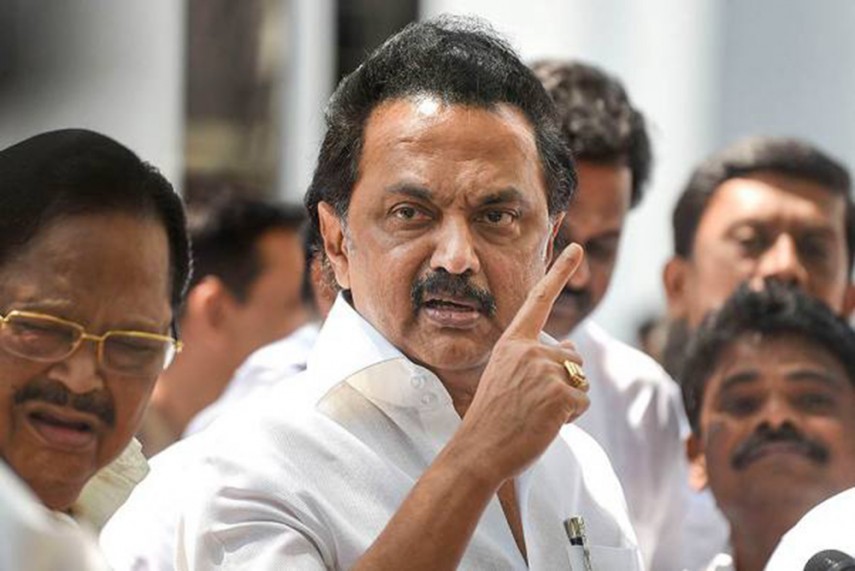
Why Tamil Nadu should restore govt employees' retirement age to 58
Many opine that the move by the previous AIADMK government not only denies employment opportunities to lakhs of jobless, it also causes a huge financial burden to the state for years

The MK Stalin-led DMK government in Tamil Nadu is duty-bound to review the decision of the previous AIADMK government to raise the retirement age of state government employees and teachers.
The Edappadi Palaniswami government hiked the retirement age from 58 to 59 and then to 60, ignoring the views that it would cause a huge burden to the state for years together, besides denying employment opportunities to lakhs of jobless. Will Stalin now scrap the decision what many called a retrograde step? That’s the question now echoes in Tamil Nadu’s political and administrative circles.
Also read: By setting up high-profile EAC, Stalin’s message is clear: TN means business
The AIADMK government, faced with the task of providing retirement benefits to employees on reaching the age of superannuation (58) chose the easy way out by extending their service by one year, merely to postpone payments for retirement dues. While the government gave itself a year’s time to pay these dues, it had failed to take note of warnings from economists that this would greatly affect the state in the long run since thousands of government employees and teachers would have to be paid huge salaries for years to come.
The Tamil Nadu government on February 25, 2021, increased the retirement age of government employees, including PSU Staff and teachers, to 60 years. This would apply to all teachers in schools, colleges and government-aided schools and employees with public sector units (PSUs).
Also read: As government readies to pass fishermen bill, disquiet in some quarters
Earlier in May 2020, the then chief minister had increased the retirement age of the government employees to 59 from 58 years.
Stalin, then in the Opposition, had slammed the Palaniswami government, saying the announcement was made with an eye on the forthcoming Assembly elections in the state.
He then said it was also necessary to increase employment opportunities for the educated youth, who are anxious about their future and have high expectations, and to devise strategies to safeguard their employment prospects.
The Tamil Nadu Government Employees Association (TNGEA) said the move would affect the job prospects of several youths. The Coimbatore Consumer Cause had recently urged Stalin to restore the retirement age to 58.
The consumer body’s secretary, K Kathirmathiyon said the decision was made only with an eye on the immediate outgo of funds from the government to retiring employees. “This was an illogical and short-sighted move by the then government,” he said.
The increase in retirement age was an injustice to youth waiting to enter government service. It was also wrong because three or four youth could be employed with the money to be paid as retirement benefits to every senior. Given the financial crunch, recruitments are not periodical and government departments face manpower shortage.
The upping of retirement age would only increase the financial burden because the seniors would move to a higher slab in pay and consequently higher pension resulting in more outgo from the exchequer.
“This is just to postpone the financial burden of the state. This only means that the financial commitment of the state will increase,” Professor J Jeyaranjan, director, Institute of Development Alternatives, said, who is now one of the advisors to the present government.
Also read: TN power co shocks continue: In efficiency, ranks 39 among 41 discoms
At least 30,000 government employees, including teachers and PSU workers, were due to retire from May 2020 to April 2021. Approximately, if the retirement benefit on average is Rs 20 lakh per person, this would help the government put off payment of retirement benefits of around Rs 6,000 crore, which is a very small portion of the total amount spent on salaries.
Had the retirement age continued at 58, at least 20 per cent of the total government employees would retire in the next three years, starting from 2020.
M Anbarasu of Tamil Nadu Government Employees’ Association also slammed the move.
“The move would not really reduce the burden on the state’s finances. Many employees would have to wait or lose promotions for another with seniors staying on in service.
Dravidar Kazhagam general secretary K Veeramani had also recently appealed to CM Stalin to revoke this decision and pave the way for recruitment of the jobless.


